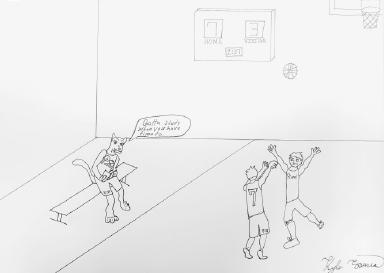Grades better, even athletes’

October 11, 2019
Recently, the number of students on the dean’s list is increasing while the number of freshmen on academic probation is going down.
That’s good news, and we commend Pitt-Johnstown students who are improving in classroom performances.
The overall athletes’ GPA also improved from 2.96 to 3.17 from 2017 to 2018, which is a no tableimprovement, especially when considering the time athletes spend honing their athletic skills and competing for all to see.
Pitt-Johnstown athletes are allowed to train up to 20 hours a week to maintain peak athletic achievement, which is equivalent to working a part-time job.
When you factor in hours of travel time to games and voluntary training activities, student athletes spend a lot more than this on their sport.
It may seem surprising that athletes are able to maintain such high marks despite such a rigorous schedule.
However, it makes sense that having a constant supportive team to motivate you would provide a push toward higher academic achievement.
Athletes must meet certain grade requirements to continue competing, so there is incentive for these athletes to stay focused and for the athletic department to support student athletes.
Athletes get some academic perks, such as significant support from advisers, mentors and group study halls held in the Sports Center.
In addition, some athletes are given incentives such as scholarships and discounted tuition rates as a reward for their persistence both in the game and the classroom.
We think that providing non-athlete students with similar motivations would be a step toward an even greater number of academically flourishing Mountain Cats to eventually wear that square hat. Whether a college athlete or a non-athlete, the collegiate journey has the same goal: to obtain a degree.
It only makes sense to take lessons learned from the athletes’ academic performances for students who are not playing on the field.
